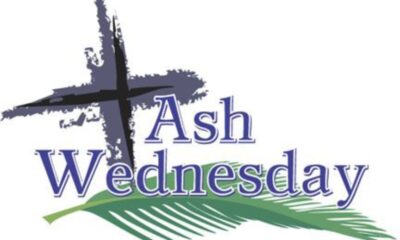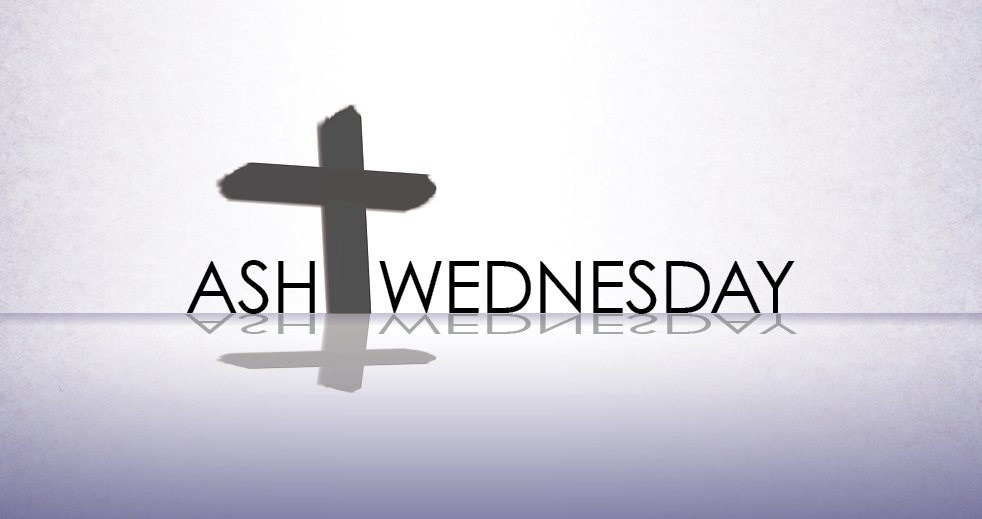Festivals & Events
Interesting and Fun Facts about Shrove Tuesday, Mardi Gras, Pancake Tuesday, or Pancake Day

Shrove Tuesday, also called Pancake Day, Mardi Gras, or Pancake Tuesday, is the last day of pre-Lent, Carnival, or Shrovetide. Ash Wednesday is the next day that the Lenten season begins. It is commemorated in many Christian countries by partaking in confession and absolution, burning the palms from Holy Week the previous year, completing one’s Lenten sacrifice, and consuming sweets like pancakes.
Shrove Tuesday, or Pancake Day, is observed globally as it marks the beginning of Lent. Millions of people participate in the celebrations of this hugely popular holiday. Let’s learn some amazing details about Pancake Day, including its origins and customs. Prepare to be astounded by everything from the ingredients needed to make the ideal pancake to pancake flips!
40 Interesting and Fun Facts about Shrove Tuesday
- Shrove Tuesday is another name for Pancake Day that is popular around the world. Every year, on the first day of Lent, it falls on the day before Ash Wednesday.
- Eating pancakes during Shrovetide week held great significance for Pancake Day, which originated as a pagan celebration.
- The word shrive, from which the word shrove is derived, refers to the act of receiving forgiveness for one’s sins through penance, which is significant before the start of Lent.
- Within the Christian religion, Pancake Day is also known as Pancake Tuesday or Fat Tuesday. The main activity on Pancake Day is eating pancakes, which is sponsored by various organizations to generate funds for charities.
- Around the world, many countries celebrate Shrove Tuesday, a Christian holiday. It occurs on the Tuesday before Lent, which is the period of time between Ash Wednesday and Easter that lasts for about six weeks. Christians give up luxury items for Lent in remembrance of Jesus’ 40-day fast and prayer fast in the desert.
- Actually, Shrove Tuesday, or Pancake Day, is a Christian Festival. It always takes place on the Tuesday preceding Ash Wednesday. Some people give up foods like chocolate and sweets for Lent. The final day of eating these foods before the start of Lent is known as Pancake Day.
- Every year, Shrove Tuesday falls on a different date. There is, however, one constant: there are always 47 days left before Easter Sunday. You guessed it—it always occurs on a Tuesday!
- The name derives from the ancient word “shriving,” which implies listening to someone’s sins and forgiving them. Christians would go to church on Shrove Tuesday in Anglo-Saxon England to confess their sins and purify their souls. Put another way, they would become “shriven.”
- Shrove Tuesday is another name for Pancake Day! It is also referred to by a variety of names all over the world. It is known as “Fastnacht” in Germany, which translates to “eve of the fast.” In Iceland, it’s known as Sprengidagur, which translates to “bursting day”!
- Pancake Day is another name for Shrove Tuesday in the UK, Ireland, Australia, and Canada! Christians used to abstain from rich, delicious foods like butter, eggs, sugar, and fat during Lent (some Christians still do this today). The final opportunity to consume them was on Shrove Tuesday, and there’s no better way to celebrate than with a delicious pancake!
- These days, people still make these delicious treats for Shrove Tuesday, and they top them with a variety of delectable ingredients like fruit, honey, chocolate, and ice cream! But look at this—during this amazing festival, pancakes aren’t just for eating—people are racing with them!
- A really entertaining tradition for Shrove Tuesday is pancake races. In this hilarious activity, participants race against one another while tossing pancakes into a pan. Pancake races are now frequently held to benefit charitable causes and assist the underprivileged. Fantastic!
- Currently, the most important query is: where did this bizarre tradition originate? There is a story that it started in the English county of Buckinghamshire in the town of Olney around 1445. Time passed and the woman forgot how busy she was making pancakes. Her pancake in the pan was still in the pan when she arrived at the Shrove Tuesday mass, having run as fast as she could to make it!
- Over 52 million eggs are used on Shrove Tuesday in the UK alone, demonstrating how widespread the custom of pancakes has grown. Over your typical day, that is 22 million more. Egg-citing stuff!
- Shrove Tuesday goes by different names in different countries. For example, it is known as “Sprengidagur” (meaning “Bursting Day”) in Iceland and “Fastnacht” (meaning “Eve of the Fast”) in Germany. The festival is known as “Mardi Gras” in France and some other countries; the name comes from the French for “Fat Tuesday.” Mardi Gras is a time for parties for a lot of people.
- Many cities around the world host lively street celebrations for Mardi Gras that include colorful parades, live bands, and extravagant fancy-dress costumes! Three cities host some of the biggest and most well-known Mardi Gras celebrations around the world: New Orleans, USA; Rio de Janeiro, Brazil; and Venice, Italy.
- The record for the biggest pancake ever tossed was set in 1994; it was 15.01 meters wide, 2.5 centimeters deep, and 3 tons in weight!
- 349 pancake flips was the record set by Dean Gould in 1995 for the most pancakes tossed in two minutes!
- The day is called Máirt Inide, which translates to “Shrovetide Tuesday” in Irish.
- It’s the tradition in France to hold a coin in one hand and make a wish as the pancake is being tossed.
- The name of the day, Sprengidagur in Icelandic, means Bursting Day. Eating salted meat and peas is a traditional celebration!
- Pancake Day is celebrated in the UK with 52 million eggs eaten—22 million more than any other day of the year!
- It’s a good idea to keep in mind that pancakes cook on the second side half as long as the first.
- On Shrove Tuesday, people typically eat two pancakes per person.
- In many Christian countries, Shrove Tuesday, also known as Pancake Day, is observed the day before Ash Wednesday.
- Pancake Day, or simply Pancake Tuesday, is a popular name for Shrove Tuesday in the US, Australia, Canada, the UK, and Ireland.
- Fat Tuesday is known in French as Mardi Gras. It is traditional to eat rich foods on this day before the start of Lent the next day.
- Fastnacht Day is another name for Pancake Tuesday among German-American communities.
- In Lithuania, people eat pancakes and donuts on Pancake Day.
- Polish communities in the US celebrate Pancake Day as Paczki Day, on which they eat paczkis, a kind of traditional pastry.
- Shrove Tuesday is traditionally marked by the consumption of pancakes as a means of using up several ingredients that people were not allowed to have during Lent, such as sugar, eggs, and milk. During the 40-day Lenten season, individuals are not allowed to eat pleasurable foods like meat, dairy, or eggs.
- Shrove Tuesday, also known as Pancake Day, is precisely 47 days before Easter Sunday. This implies that the date may change based on the exact date of Easter Sunday.
- On Pancake Day, the United States restaurant chain IHOP gives away free pancakes to patrons to raise money for the hospitals affiliated with Children’s Miracle Network. On Pancake Day in 2011, IHOP raised $2.5 million for charities while serving 4 million free pancakes.
- Since 1445, there has been an annual pancake race in Buckinghamshire, England. Women toss their pancakes at the start and finish of the 415-yard race while toting a frying pan. For them to participate, they have to wear an apron and scarf, and this also applies to men.
- In Britain, towns and villages celebrate Pancake Day with races that are followed by church services.
- Pancakes are not eaten on Shrove Tuesday in every country. Pastries and green pea soup are common foods in Finland. They eat salted meat and peas in Iceland.
- The term “Gudisdienstag,” which means “a stomach full of food” in Swiss, is used to refer to the day.
- Children from Lancashire knock on doors in Whitechapel and ask for pancakes.
- Pancakes are also traditionally associated with Christian festivals during that time of year in Russia and Ukraine.
- Pancake Day, also known as Shrove Tuesday, is a flexible holiday that can occur on any day between February 3 and March 9.
-

 Gadget4 weeks ago
Gadget4 weeks agoAfter Grand Success on BLDC Ceiling Fan, Eff4 Is Launching Smart Bulb
-

 Festivals & Events4 weeks ago
Festivals & Events4 weeks agoGoogle Celebrates Cherry Blossom Season with Animated Doodle
-

 Business2 weeks ago
Business2 weeks agoPrakash and Kamal Hinduja: Driving Social and Environmental Change
-
Education3 weeks ago
Fred DuVal: University Leadership as a Critical Resource for Climate Change Research and Life-Saving Solutions
-

 Health2 weeks ago
Health2 weeks agoThe Hinduja Brothers Commitment to Global Health: Empowering Communities Across Borders
-

 Cryptocurrency3 weeks ago
Cryptocurrency3 weeks agoDesigned For The Masses: How Akasha (AK1111) Is Unlocking Crypto For The Next Billion Users
-

 Cryptocurrency3 weeks ago
Cryptocurrency3 weeks agoNexaglobal & Future World Token (FWT): Could This Be the Next Big Crypto Investment of 2025?
-

 Sports4 weeks ago
Sports4 weeks agoWomen’s NCAA Tournament 2025 Sweet 16: Full Schedule, Fixtures, Teams, Bracket, and How to Watch March Madness Basketball Match Live


















